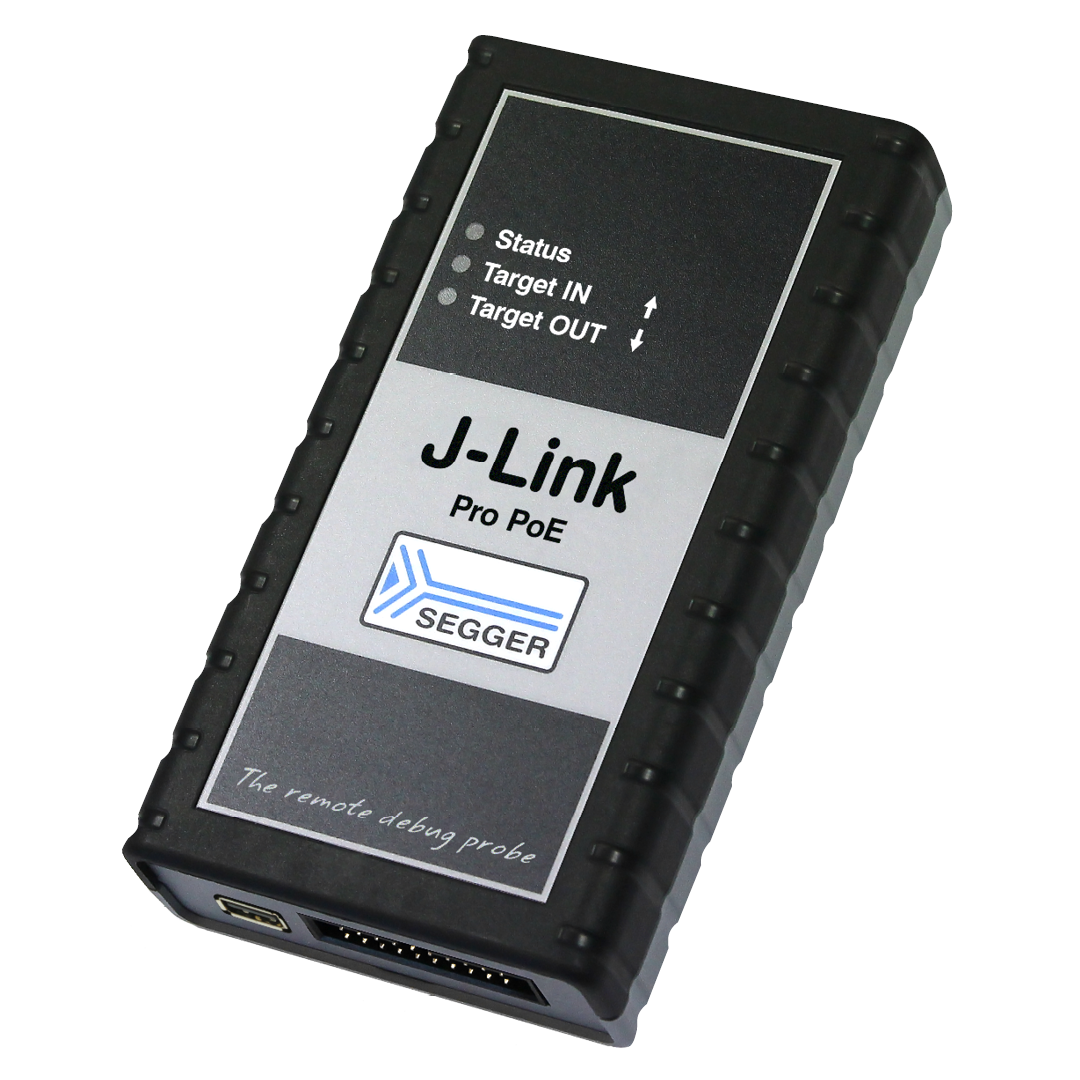We have been using automated tests on hardware in the Flasher and J-Link departments for some time.
But now with the new J-Link PRO PoE, we felt it was time to get some of the evaluation boards out of the cabinets and build a proper test farm. We are selecting the most popular boards so everyone in the office (and even those working from home) has access and can run tests.
J-Link PRO PoE is like a J-Link PRO (with USB and Ethernet), which can also be powered over Ethernet (hence the PoE in the name) and has a 5V USB output. This makes it perfect for test farms.

The test farm
At SEGGER, the test farm is heterogeneous, so all boards are different.
We use the farm for regression tests for our J-Links, as well as for software such as emCrypt and the SEGGER Compiler, to test both functionality and performance.
This week, we added the new GD32VW55x evaluation board, the first RISC-V board in the farm.
The farm makes the boards available to anybody on our LAN. There’s no need to get the box from the cupboard, open it, take out the board, find a way to correctly power it, and find which type of debug connection is required. Everything can be run easily and automatically over the network with the board already connected, set up, and ready to go.

For now, everything is simply mounted on a magnetic white board on the wall. The boards are all powered through the J-Links, which not only makes the connection simple, but more importantly, it also makes it possible to power-cycle the target remotely via J-Link. With control of power to the target, the target can be powered down when not in use.
Some of the boards are also connected to the PoE Switch to communicate with the program running on the target CPU via Ethernet and test our emNet stack or higher layer protocols, such as emWeb (HTTP), emFTP, or emSSL, emSSH and others.
I expect the test farm to grow over time, as it gives multiple developers easy access to boards and also makes running automated tests straightforward.
Conclusion
Test farms can be used for various purposes: to test different software versions, test software on different platforms, and to perform regression and performance tests.
They can:
- Be integrated into a CI/CD system and run automatically.
- Make quality assurance easy and effortless, without any manual work.
- Be used to share a single piece of hardware amongst different developers.
And: They are easy to build with J-Link PRO PoE!
Happy farming! :-)